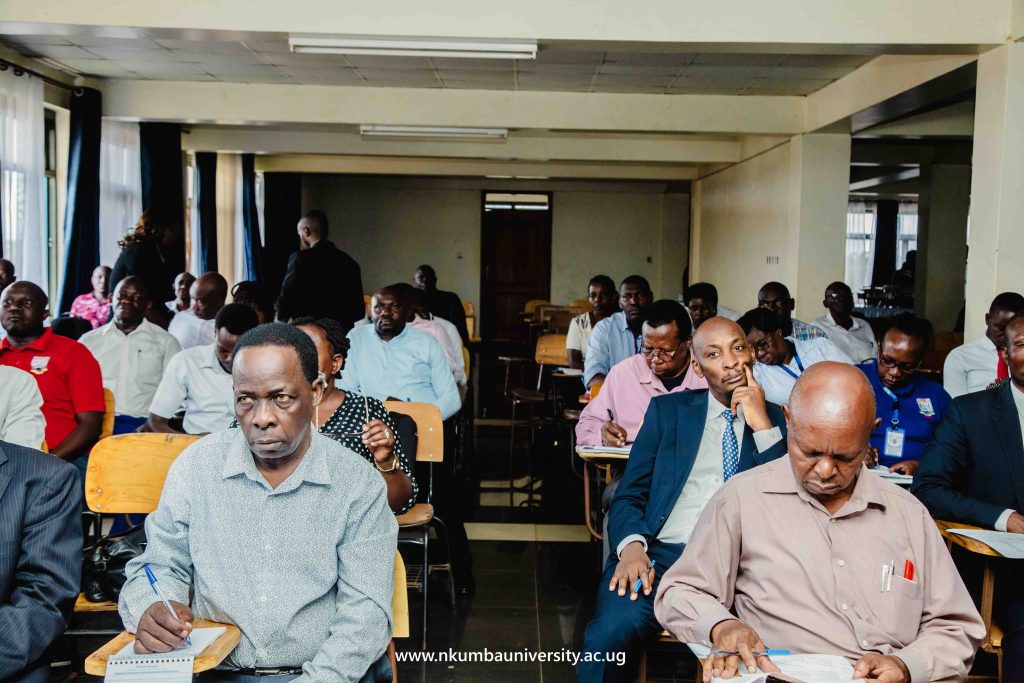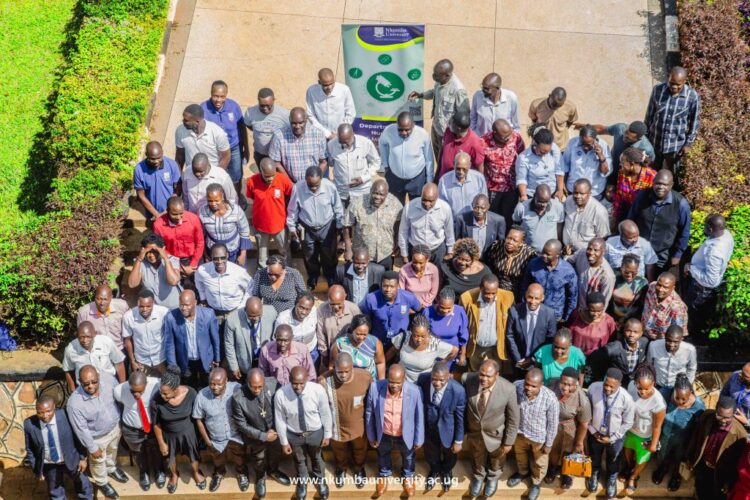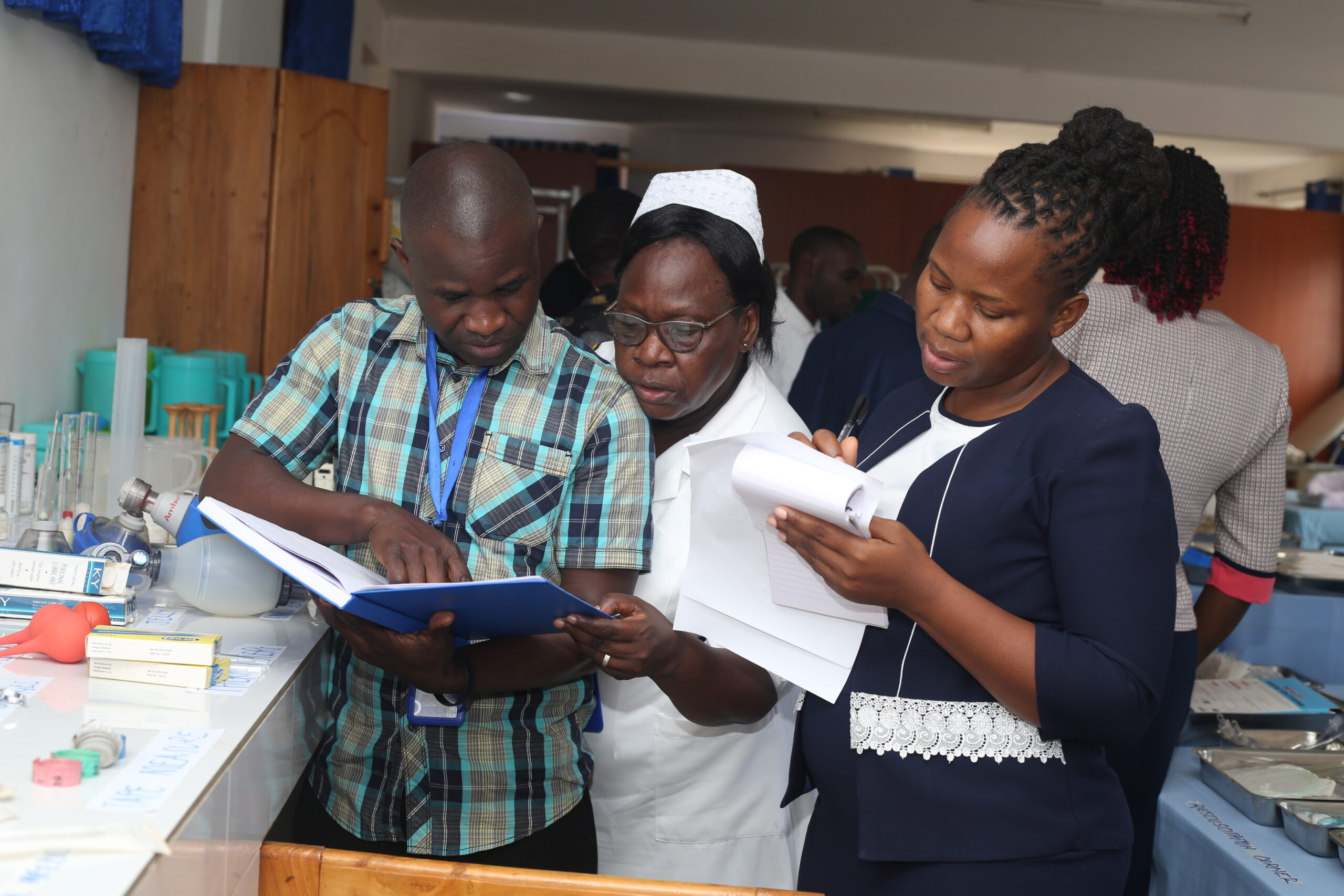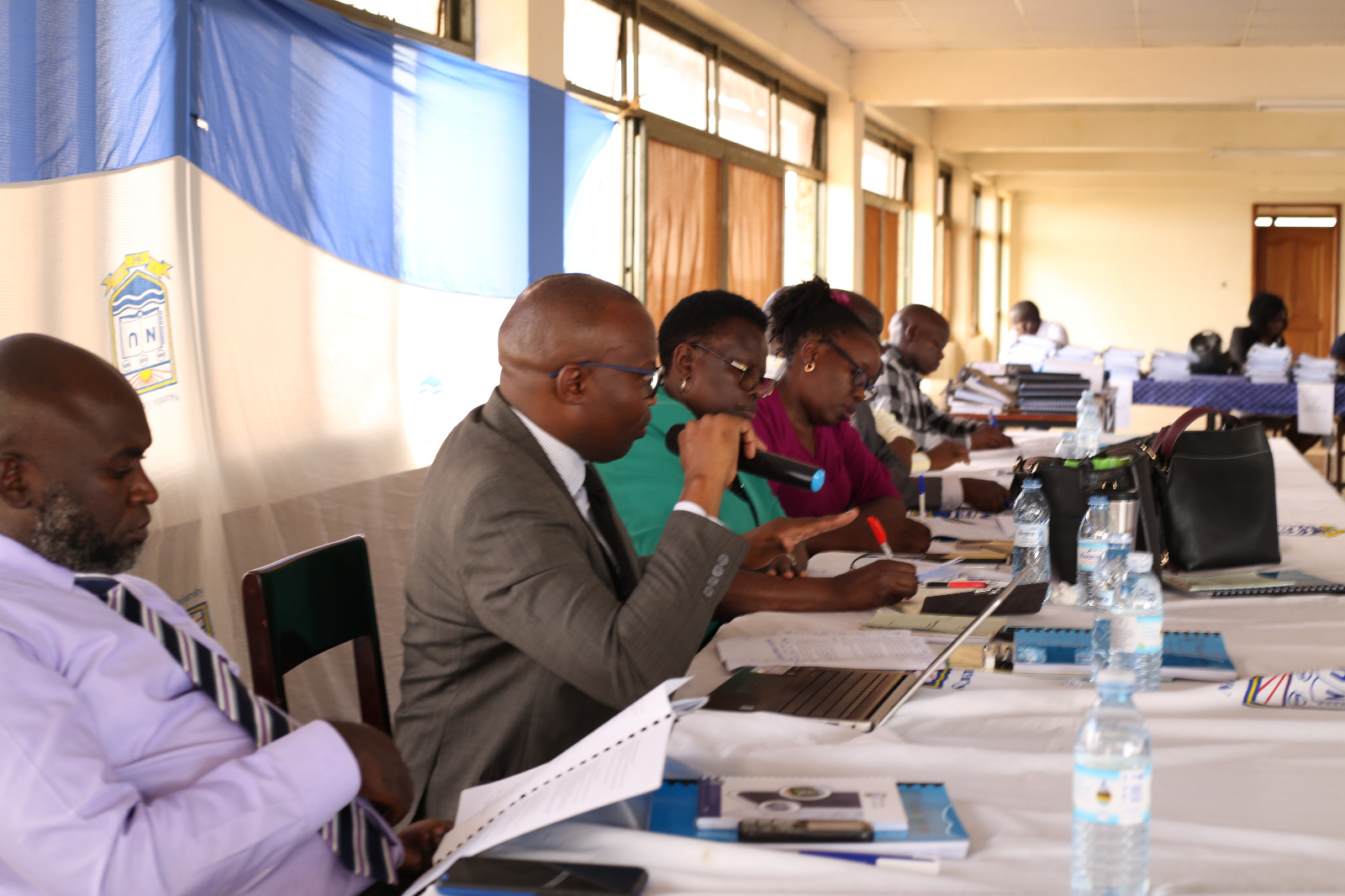NALWANJA ANISHA
Nkumba University’s Quality Assurance Directorate has conducted a two-day Academic Staff Capacity Building Training Workshop to equip instructors with skills aligned to the Competence-Based Curriculum (CBC).
The training workshop commenced yesterday, 16th May 2025, under the theme, “Dynamics in Adaptation to Competence-Based Curriculum and Assessment in Universities.”
In his opening remarks, Nkumba University Vice Chancellor, Prof. Jude Lubega, warned that academic staff must swiftly adjust to adopt competence-based teaching, or risk facing rebellion from students. “So we have no way out, either the students will rebel against us. National Council wants this implemented, and as management, we will do everything within our power to support you,” he said.
Nkumba University’s Quality Assurance Director, Mr. Francis Ssengendo, said the training was part of the institution’s proactive response to the National Council for Higher Education’s directive for universities to prepare academic staff for the Competence-Based Curriculum.
Keynote speaker, Dr. Frank Pio Kiyingi, the Nkumba University Academic Registrar, lauded the National Council for Higher Education for its foresight, saying, “We need to focus on the student learning outcomes, and the demonstration of skills, competencies, and aptitude.”
Dr. Kiyingi added that universities should invest in real-life projects as applied at the National Certificate level, allowing students to emulate skills. “Real-life Projects being done National Certificate level is one such area that we ought to invest in heavily.”

Academic Staff During one of the training sessions. // Japheth Godwin Walakira
Dr. Peter Kayizi from the National Curriculum Development Centre (NCDC) emphasized that lecturers need to know their learners’ needs first and start creating engaging cognitive activities that promote problem-solving.
“Each lecturer has at one point had a student empty his skills; this, according to Dr. Kayizi, is because students are flexible enough to adapt to the evolving skill sets.
Dr. Kayizi emphasized that in the Competence-Based Curriculum, lecturers need to understand their learners’ needs first. He illustrated this point with an example, “Imagine engaging International Relations students in a cognitive activity where one group is tasked with moving chairs to the back of the class and another group to the front. This creates a simulated crisis, allowing observers to assess how the students resolve their differences.”
Uganda’s Competence-Based Curriculum (CBC) is a learner-centered approach that focuses on developing innovative, active, and engaged learners. The curriculum aims to equip students with the skills and competencies necessary to solve societal challenges.
The new CBC was introduced at the lower secondary level (Senior One to Senior Four) to replace the traditional teacher-centered approach. The first batch of students under this curriculum completed their Uganda Certificate of Education (UCE) exams in February 2025.
To prepare for the influx of CBC-trained students into universities, universities are making necessary adjustments to build capacity and be prepared for this new breed of learners.
Nkumba University’s Quality Assurance Directorate conducted an Academic Staff capacity building training workshop under the Theme: Dynamics in Adaptation to Competence-Based Curriculum and Assessment in Universities. This initiative, funded by Nkumba University Management, sought to equip academic staff with the necessary skills and knowledge to effectively teach and assess students under the new curriculum.
The University will continue with Training academic staff, enhance e-learning capabilities, and embrace digital transformation all with a focus on CBC.





















Discussion about this post